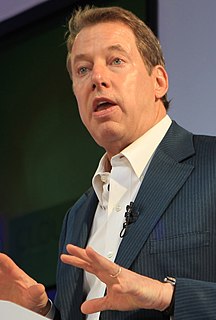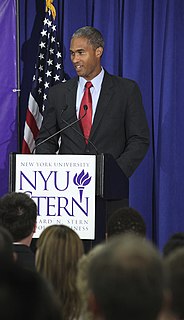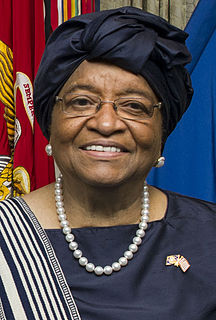A Quote by Klaus Schwab
The trends that are shaping the twenty-first-century world embody both promise and peril. Globalization, for example, has lifted hundreds of millions of people out of poverty while contributing to social fragmentation and a massive increase in inequality, not to mention serious environmental damage.
Quote Topics
Related Quotes
I think the twenty-first century happened, basically. That this century started on 9/11. And basically, it's been a century of counter reaction to globalization and the meritocracy. And a good century for 72 nations have gotten more authoritarian. We've had Brexit. We have Le Pen rising in France. We've just got a lot of these types all around the world. And the people who are suffering from globalization and the meritocracy are saying, "No more. You know, we get a voice too."
There have always been two theories about inequality. One is that it reflects just deserts. The other is that there are large elements of exploitation and inequality of opportunities. The evidence is overwhelmingly that the increase in inequality is associated with those negative factors. If it were all social contribution, then when the top did better, they would be contributing to everybody's well-being. That trickle-down hasn't happened. We've seen median income, people in the middle, actually worse off than they were 25 years ago.
Between 2001 and 2011, Brazil lifted 20 million people out of poverty and into its growing middle class, and in the last quarter of the twentieth century Botswana's gross domestic product per capita grew faster than that of any other country on the planet. The once-labeled 'Third World' is edging its way into the 'First World.'
And while we stand with conviction and courage, we must live with compassion. Amid a world with massive social needs around us, ranging from desperate poverty and orphan crises and millions of girls being trafficked for sex, to the degradation of marriage and the abortion of babies, we need to speak and act with selfless love on all of these issues.
We draw many benefits from globalization that people take for granted. Poverty has been reduced massively around the world. If you look at the Chinese numbers, it is quite mind-boggling: 700 million people taken out of poverty in a matter of 40 years, the poverty rate having moved from over 30 per cent from hardly six per cent now. That would not have happened if there had not been globalization.
Most of us still believe in the intrinsic value of nature, but I think the first century of the environmental/conservation movement demonstrated pretty clearly that this value cannot compel a civilization-wide shift toward sustainable behavior and enterprise when stacked up against the urgent economic and social needs of 7 billion people, most of whom are struggling to get out of poverty.
China is a country, still, of great contrast. While hundreds of millions of people are part of the middle class and yearn for things made in America - American brands, movies, music - there are other hundreds of millions of people throughout China who are living on the equivalent of one U.S. dollar a day.




































